UToledo is Developing Solutions to Prevent and Treat Global Health Challenges
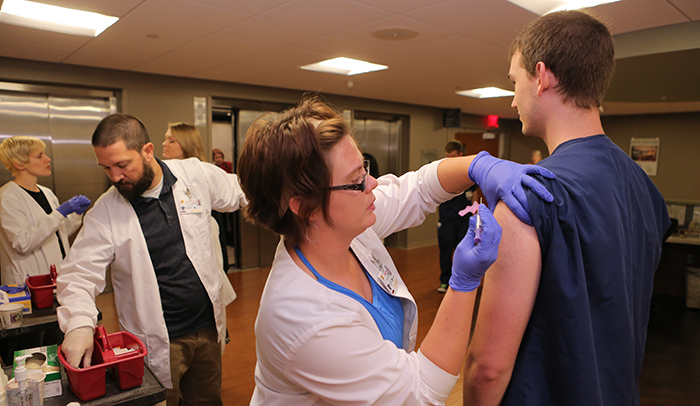
As the coronavirus outbreak has shown, global health challenges are constantly emerging due to a wide range of unpredictable factors. UToledo researchers are working with urgency to develop new vaccines and therapies to protect against and effectively treat these viral threats and provide critical community education on prevention and self-care.
Steven Sucheck, Ph.D., and Katherine Wall, Ph.D., are collaborating on new prevention methods that don't rely on dead or weakened pathogens. Supported by a $2.3 million grant from the National Institutes of Health, the chemists are creating a synthetic vaccine against Pseudomonas aeruginosa, an antibiotic-resistant bacterial infection that can be deadly for people with compromised immune systems and conditions such as cystic fibrosis.
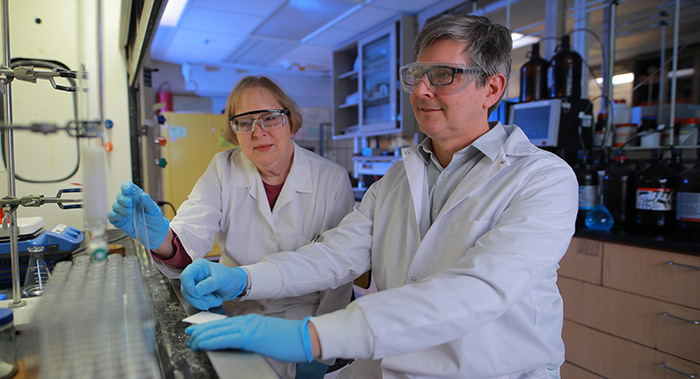
Infectious disease expert Jennifer Hanrahan, D.O., has been a leading advisor on UToledo's COVID-19 response, and recently served on a community panel of University health experts to provide accurate information to our community on the novel coronavirus.
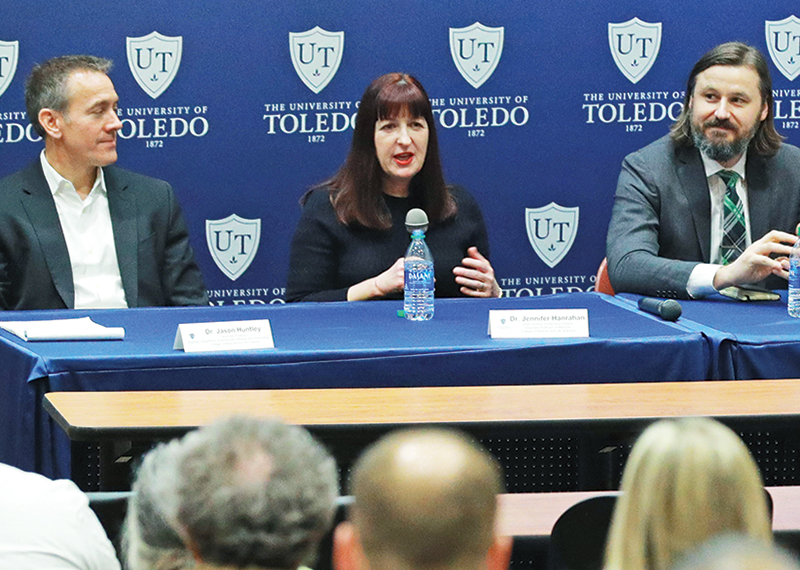
Clinical psychologist and Dean of the College of Nursing Linda Lewandowski, Ph.D., and her colleague Dr. Cheryl McCullumsmith, professor and chair of the UToledo Department of Psychiatry, have shared their extensive experience in trauma research and disaster mental health to help the public deal with the anxiety many are facing during the COVID-19 global pandemic.
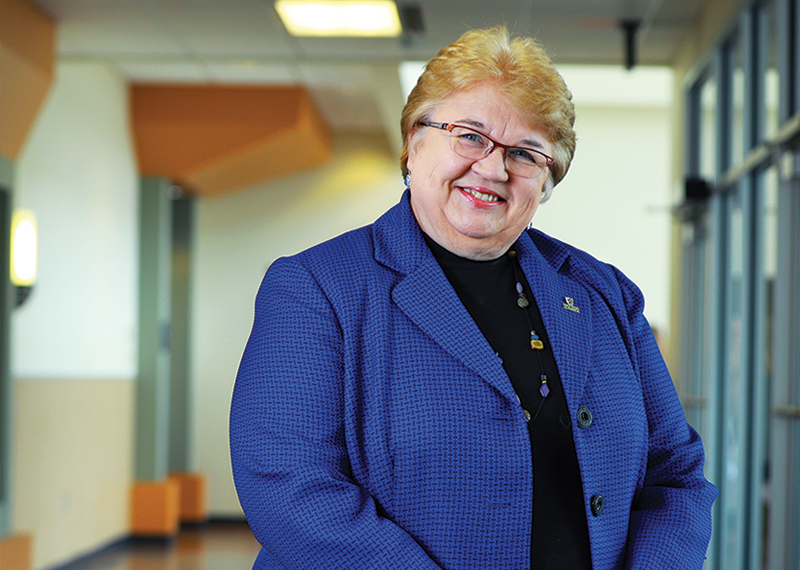
Lyme disease affects more than 300,000 Americans annually, and Mark Wooten, Ph.D. has dedicated his career to developing more effective therapies to prevent and treat the illness that is spread by ticks. He created advanced microscopy methods to study how the disease progresses in real-time.
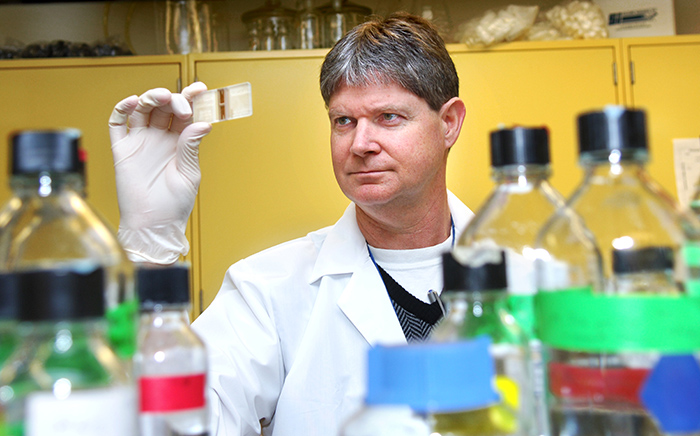
Tuberculosis is the world's leading cause of death from infectious disease. Dr. Sucheck's expertise also includes working to create a new, more effective drug to treat the illness that is becoming increasingly drug-resistant. His research is supported by a $2.1 million grant from the National Institutes of Health.
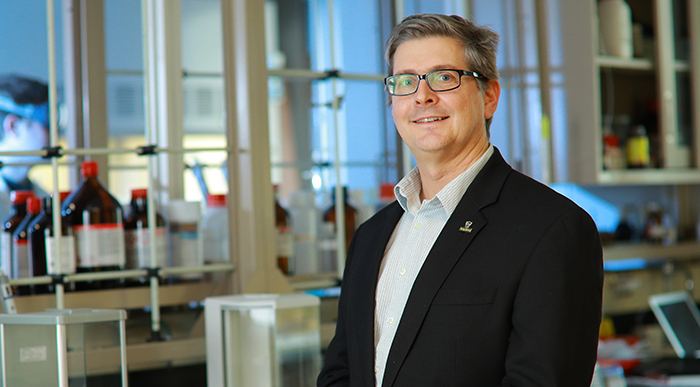
Heather Conti, Ph.D., studies the body's immune response to the fungal infection called oral candidiasis, more commonly known as thrush. Her work looks at the role blood platelets play in the body's natural defense against oral candidiasis in hopes of developing therapeutics that can both kill the fungi and boost the immune response.
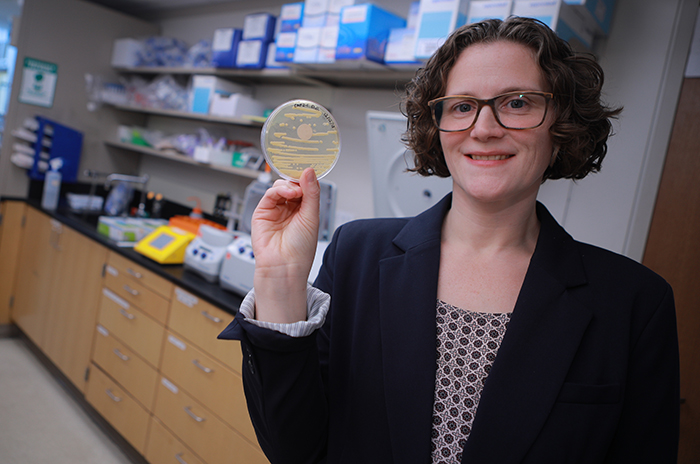
Cheryl McCullumsmith, M.D., Ph.D., is investigating the use of ketamine as a novel treatment for suicide ideation. Ketamine is traditionally used as an anesthetic agent, but her research is showing promise for treating suicidal individuals in crisis.

Incidents of sepsis, a life-threatening condition caused when the body's response to infection damages its own tissues and organs, have risen nearly 30% in the past decade. Kevin Pan, M.D., Ph.D., is exploring whether the drug rolipram - shown to be an effective antidepressant - could be a viable treatment.
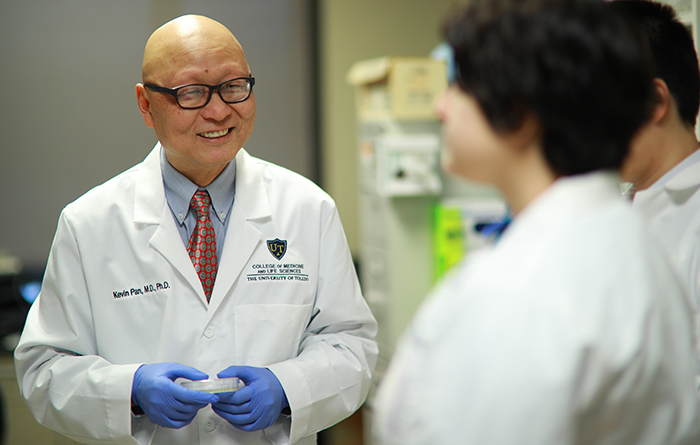
Learn More
- 13 ABC: University of Toledo experts talk coronavirus concerns with the community
- STAT: How touching your face can spread viruses - and why you're so bad at avoiding it
- Journal of Healthcare Contracting: Preparedness is key for hospitals and health systems when responding to an infectious disease outbreak.
- ROMPER: Most DIY Hand Sanitizer Won't Kill Coronavirus But These Recipes Will, Say Experts